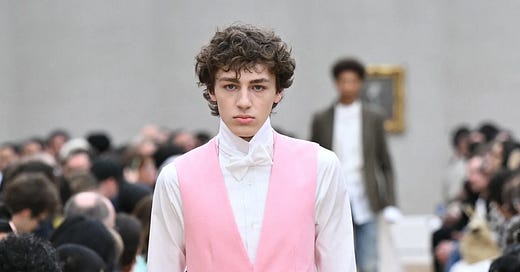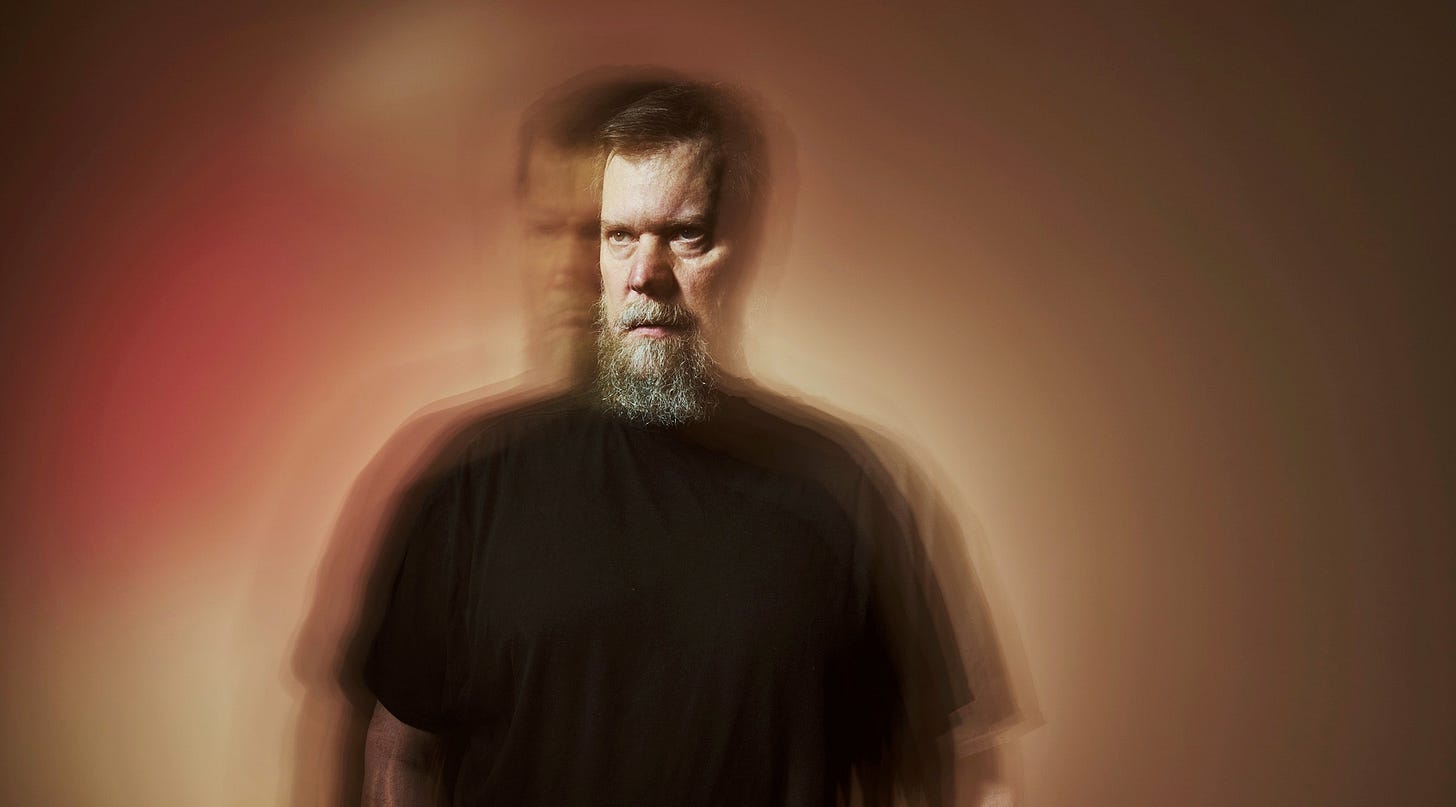Ten years ago, the idea that the British Fashion Council would cancel its menswear shows would have been inconceivable. Defining shows by Craig Green, Nasir Mazhar, Christopher Raeburn, and Nigel Cabourn saw London as the nexus of some of the world’s finest tailoring and sportswear. Today, there is a panoply of money- and enthusiasm-draining impositions – Brexit, a cost-of-living crisis, and a luxury market in freefall – that have made London a logistical headache for brands old and new. Heritage Savile Row designers are grappling with the Row’s rising rents, while other designers are abandoning the Old Smoke altogether. Saul Nash showed his collection in Milan this year, whereas Craig Green and Wales Bonner have decamped to Paris. C’est la vie.
It’s not just in fashion: the culture industry at large has struggled to respond to ever-evolving conceptions of masculinity. Cinema at least seems to be chewing this over, with a new wave of soft-bodied leading men – Josh O’Connor, Paul Mescal, Harris Dickinson – taking the helm. But in other areas, we appear to be stuck in a time warp. Recently launched men’s magazine Sir! looks to revive the elevated lads-mag spirit of the 2000s, with an old guard editorial team to match. Jonathan Anderson’s debut menswear collection for Dior offered the kind of playful vision of masculinity the industry needs, but time will tell whether its regimental neckties and Brideshead Revisited-worship will resonate beyond the runway.
While the industry tussles with whether Harry Styles wearing a dress is revolutionary or passé, a figure like Andrew Tate – whose paranoid red-pilled proselytising has engagement that fashion PRs could only dream of – is arguably far more in touch with the contemporary male mood. Which begs the uncomfortable question: why is no one making a magazine for that man? Not to legitimise his brand of shameless misogyny, but to consider what his popularity reveals. Ignoring the problem and hoping the masculinist tide will reverse course will not work for this new variant, which speaks the argot of looksmaxxing and algorithm-baiting more than besuited metrosexuality. We aren’t proposing a technofascist men’s magazine, but rather that we deeply engage with how the man sees himself today, rather than clinging to a series of increasingly faded ideals. Until then, we are doomed to remain in a nostalgia purgatory that no longer speaks to the present, let alone the future.
Matteo Pini







